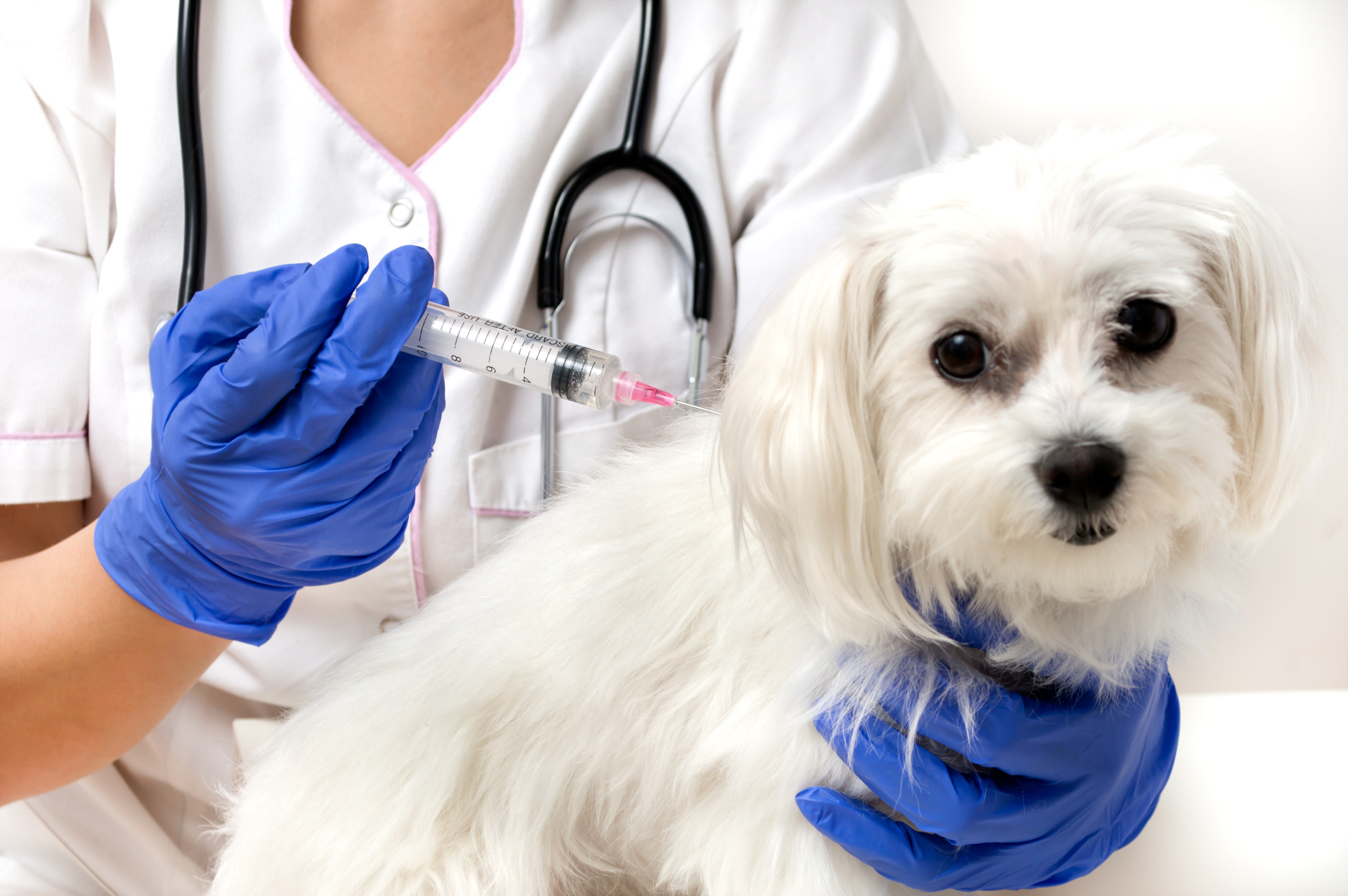
August is Pet Immunization Awareness Month!
When is the last time your pet received their vaccinations? If it’s been longer than a year, now’s the time to check in with your vet! The month of August is Pet Immunization Awareness Month to remind pet parents to vaccinate their furry friends against contagious and potentially deadly diseases.
Just like humans need certain vaccines to prevent them from developing very dangerous illnesses, pets should be vaccinated, too. Depending on where you live, your pet may be required to received certain vaccinations against things like rabies in order to legally be out in public. Other vaccines are considered “core” vaccines to protect your pet against some of the most common diseases for their species.
Regular vaccinations should be a part of your pet’s routine preventative care. By immunizing your cat or dog, you can give them the best opportunity to living a safe, healthy life.
Understanding vaccines
After a vaccine is administered to your pet (through the process of “vaccination”), the body builds up immunity. The body’s immune response is what is known as “immunization.”
Vaccines are medical products that are designed to stimulate your pet’s immune system and prepare it to fight off certain types of pathogens. The vaccine does not contain an antigen that will make your pet sick. Once injected, your pet’s immune system identifies the antigen in the body and creates antibodies that are capable of destroying the antigen. When antibodies for a particular antigen are created, your pet’s immune system has a much better chance of fighting off those disease-causing antigens in the future.
The effects of immunization may not last forever, though. This is why veterinarians recommend that your pet get a “booster” every few years to help them maintain immunity. Many vaccines used to require boosters every year, but more and more vaccines are being developed to allow pets to go multiple years without a booster.
Vaccines are not guaranteed to prevent your pet from getting sick 100 percent of the time. However, they are an effective way of preventing illness in most cases. Even if your pet does get sick, they may be able to fight the disease more effectively and have less severe symptoms if they have been vaccinated.
Additionally, some vaccines can produce side effects in pets. In the large majority of cats and dogs, these side effects are not serious—many will experience no side effects at all. Still, it’s important to learn about the potential side effects of each vaccine your pet receives to make an informed decision.

Why are pet immunizations important?
Vaccinating pets is extremely important for their overall health and wellbeing. The most common vaccinations for cats and dogs are suggested to pet owners because they are effective at preventing painful or life-threatening diseases. These are particularly important for young animals, since their immune systems are not fully developed and will have more trouble fighting off a disease.
In many cases, core vaccinations cover diseases that spread easily between animals and diseases that can spread from animals to humans. If a dog at the dog park has a disease and your pet is not vaccinated, they could bring that home and then spread it to you or your other pets. Immunization helps protect your entire family—furry or not—from contracting dangerous diseases.
Vaccinating your pet also helps protect you from unexpected healthcare costs. Some of these diseases are extremely serious and can create extraordinary vet bills if your pet gets sick. Vaccines are inexpensive ways to prevent something much more serious.
Finally, it may be necessary for your pet to be vaccinated if you plan on boarding them, taking them on a plane or even living in certain areas.
Common core vaccinations for pets
Cats and dogs typically need a few of the same vaccines, as well as some species-specific vaccines. Your vet will instruct you on the particular vaccines recommended for your pet based on the region where you live and your pet’s activities.
Core vaccines are groups of vaccines that most pets should get, starting when they are puppies or kittens, to protect them from the most common and dangerous diseases. The following vaccines are the most common core vaccines for cats and dogs:
Cats
- Rabies
- Feline Herpesvirus
- Feline Calicivirus
- Feline Panleukopenia (also known as feline distemper)
Dogs
- Rabies
- Canine Distemper
- Canine Parvovirus
- Canine Adenovirus
Other common vaccines might include feline leukemia (FeLV) for cats and Bordetella for dogs.
If you recently adopted a puppy or kitten, your vet will likely recommend that they receive a series of vaccinations three to four weeks apart. Administered this way, the vaccinations help prime the immune system and build up immunity over time. After they receive their initial vaccinations, most pets can switch to yearly (or longer) vaccination periods.
Is your pet protected?
In the spirit of Pet Immunization Awareness Month, check your pet’s vaccination records and see whether they’re due for a vaccine or booster shot. Reach out to your vet to discuss your furry friend’s upcoming vaccination schedule, so you can be sure they’re protected.


